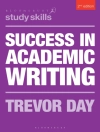“Revolution, not reform, is required to release the power of teaching …. Virtually, all teachers possess tremendous power which can be released, given the proper exposure. We can’t get to that point by tinkering with a broken system. We must change our intellectual structures, definitions and assumptions; then we can release teacher power.” (Hilliard, 1997) This book was written during a time of growing upheaval and disagreement about how America should educate its students, particularly those who are poor, diverse, and failing school. Dominant educational research, newspapers, and popular movies such as “Waiting for Superman” continually fuel public debates about whether our 21st century schools provide justice for all, decrease the achievement gap, and leave no child behind. However, even though one of teachers’ greatest concerns and why many leave the profession, classroom discipline is rarely brought to the forefront of discussion. As a result, public discourse does not get into what actually happens during disciplinary moments that ultimately leads to the disproportional tracking of particular students into exclusionary school disciplinary consequences, which funnels an underclass of students into the school-to-prison pipeline. This book is a scholarly study, presented here as a readable story, and practical guide for walking teachers, administrators, and teacher education programs through the process of transforming traditional ways of thinking about classroom discipline and teaching in order to create student-centered, creative, non-punitive classrooms that authentically engage the most alienated and oppressed students in our schools and society.
Daftar Isi
List of Illustrations; Foreword; Part 1: Why Now? Why This?; 1. The Issue / School-to-Prison Pipeline; 2. Debbie’s Story / Critical Reflection on Teaching; 3. The Study / Teacher Practices Around Exclusionary School Discipline; Part 2: Charming Chef; 4. The Power of Charm; 5. Prospective Culinary Assistants; 6. “It’s Better to Not Make a Big Deal”; Part 3: Patient Protector; 7. The Power of Protective Coercion; 8. Curious Attention Seekers; 9. “Everything Is Relative”; Part 4: Empathetic Psychologist; 10. The Power of Unresolved Interactively Established Contracts; 11. Challenging Observant Debaters; 12. “Everyday Is a Battle”; Part 5: Ex-Cop Lecturer; 13. The Power of Normative Coercion; 14. Bored Point Seekers; 15. “Adopt My Expectations or Fight Me on It”; Part 6: What Have We Learned?; 16. Advice / Insights / Tips—for Teachers; 17. Advice / Insights / Tips—for Teacher Education Programs and Administrators; 18. School-to-Prison Pipeline Revisited / Looking to the Future; Glossary of Terms; Additional Resources; References; Index.












